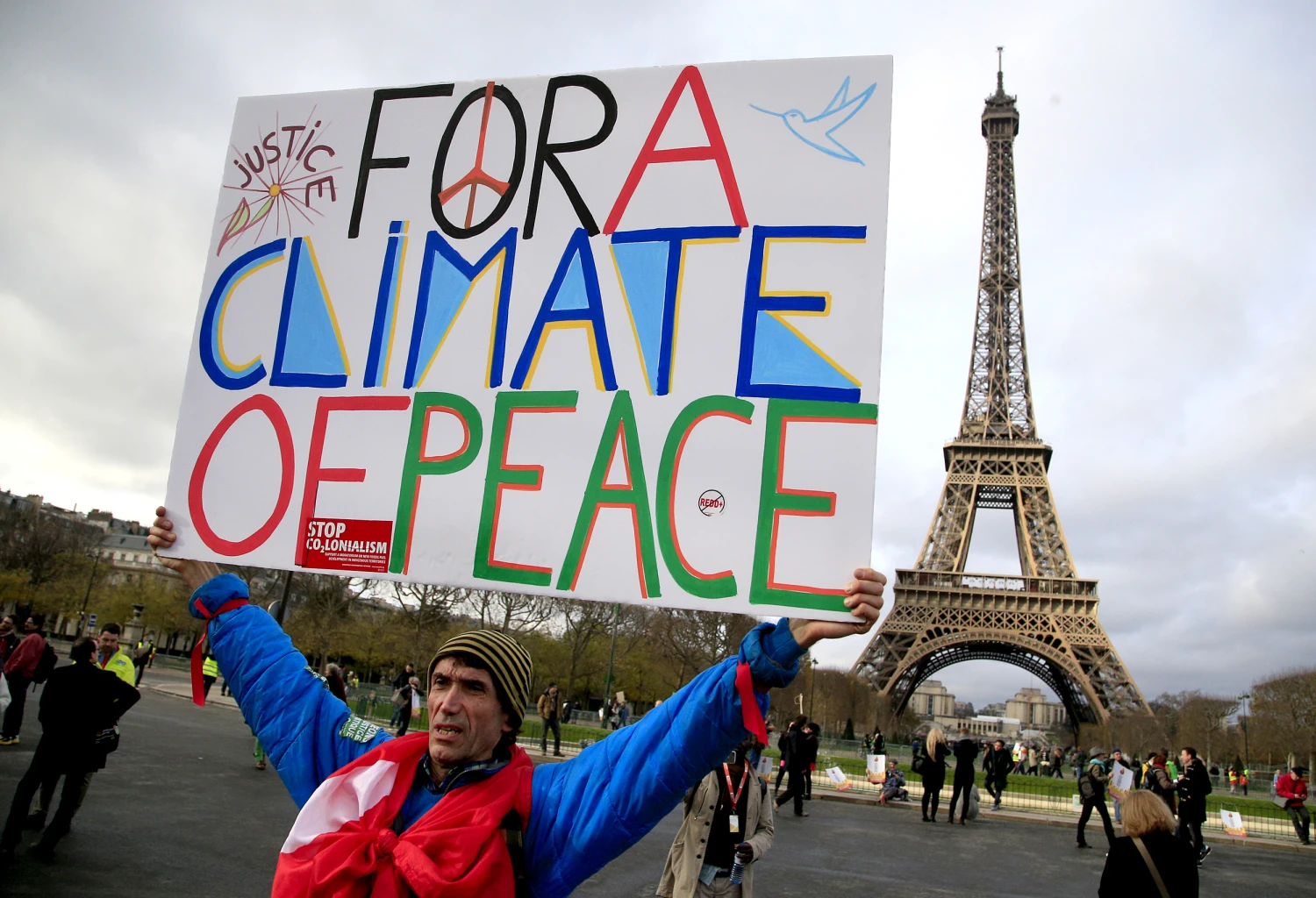I don’t know any critic of the Paris climate agreement who wouldn’t love to be wrong. Perhaps the consensus climate science hasn’t been skewed to appear like we have time when, in fact, there isn’t any left. Perhaps the emboldened political leaders of the world will overcome the immense weight of greed and lethargy. Perhaps a crisis rooted in the very marrow of the bones of our species can be neatly solved with a good cap and trade policy. Perhaps the political weight of thousands of moderate protesters is greater than it may appear.
Wouldn’t it be fabulous if historians in some future that is thriving, just and lush point to COP21 as the crucial pivot point where humanity mobilized and self preservation trumped venality and sloth? (And wouldn’t that make us – the people who pushed and shoved and demanded – saviors of the world? Just saying.)
Sure, there will be more hard work ahead; it’s not going to be easy, but shouldn’t we take this moment to celebrate the undeniably unexpected achievement of rewriting the climate story between Copenhagen and Paris? Isn’t this a victory?
If only it were so, but it’s not, and the crucial problem here is that this same impulse, this very human desire to believe things are better than they are and that nothing really tough or risky needs to be done, is the root cause of our failure.
We should be horrified, shaken and questioning. Just to pick one data point, in the 5 years before the next international convening, CO2 emissions will lock in a 1.5C temperature increase. We should be asking, what else can and should we be doing?
The fifth guiding principle of the Climate Disobedience Center, perhaps the toughest, states that we must,
“Tell the devastating truth that the world is ending on our watch. We refuse to dumb down the problem or lie about the scale and speed of global response necessary to avert cataclysm and survive increasingly chaotic conditions. In this we find true hope, not a false hope based on the denial of the hard reality or the allure of easy solutions.”
Instead, the prevailing mood in Paris – I wasn’t there, but judging by the congratulatory messages and all the smiling faces on FB – is celebratory, and the main lesson seems to be that we have done a great job and all we need to do is work a bit harder.
But the real lesson of Paris is that incrementalism was tried and it has failed. What we do from here as a movement – the story we tell, the actions we take and our investment of energy and resources – must aim for non-linear change.







Leave a Reply